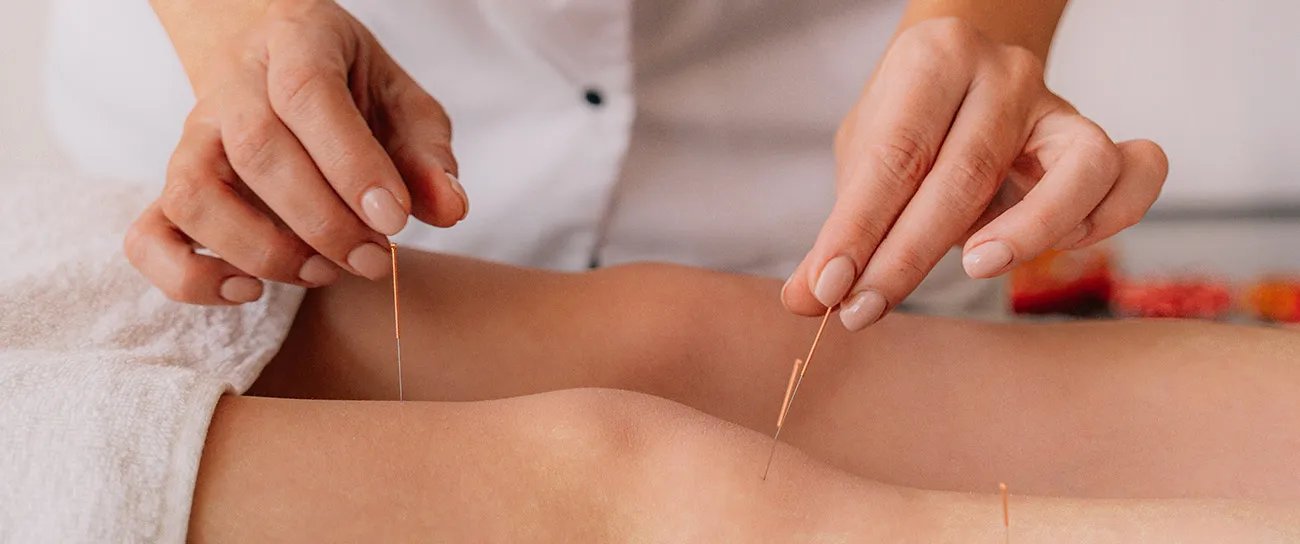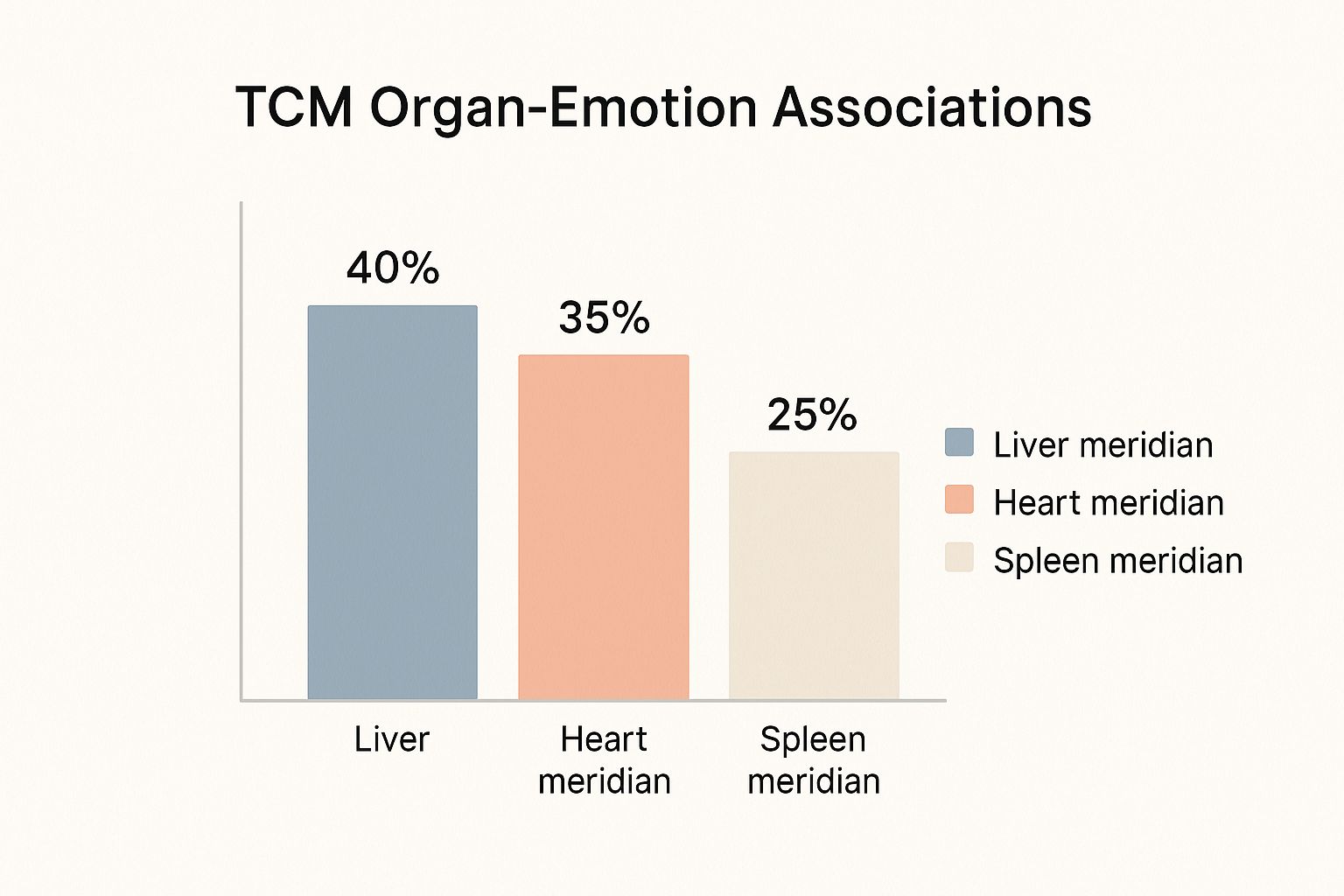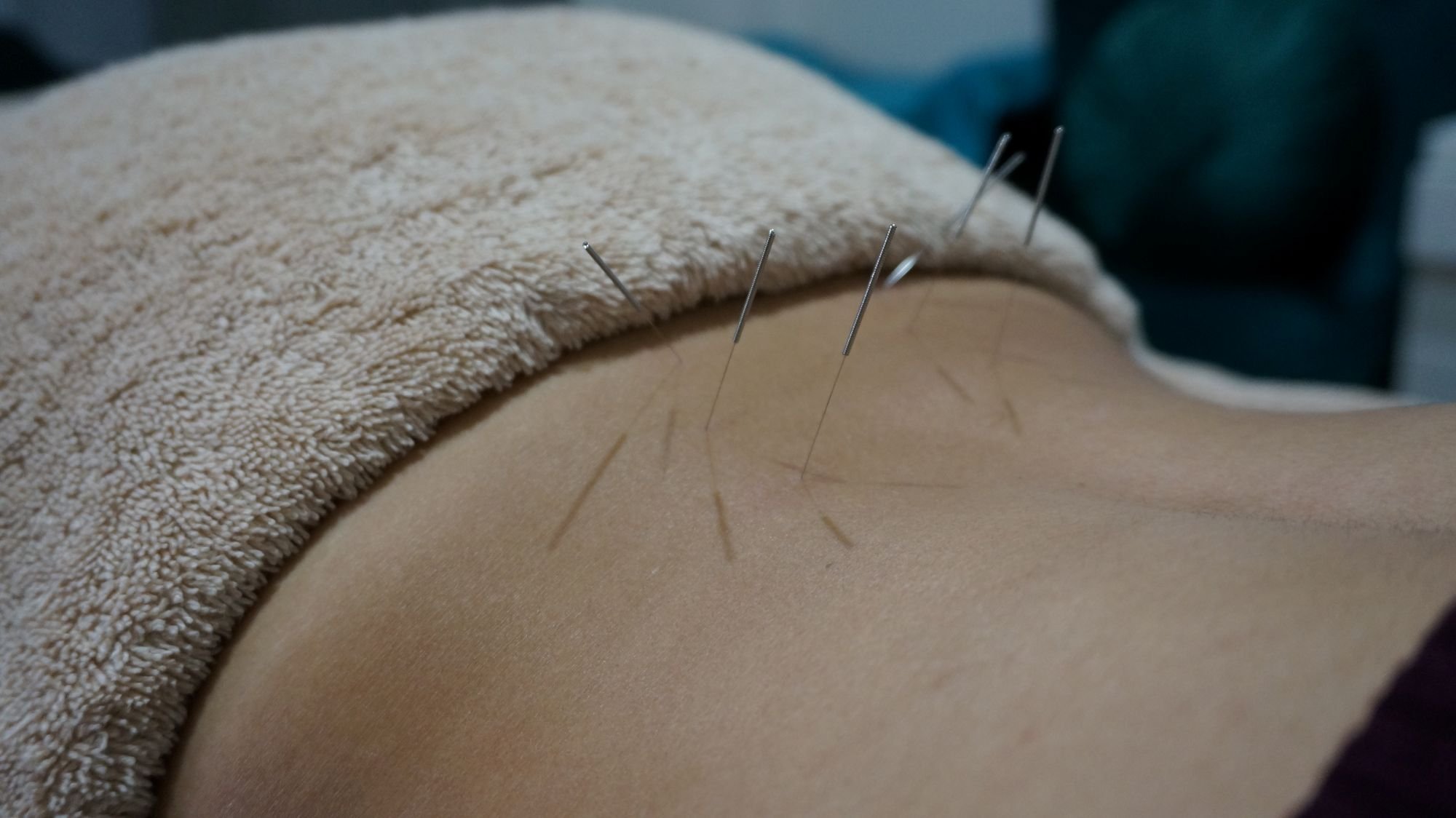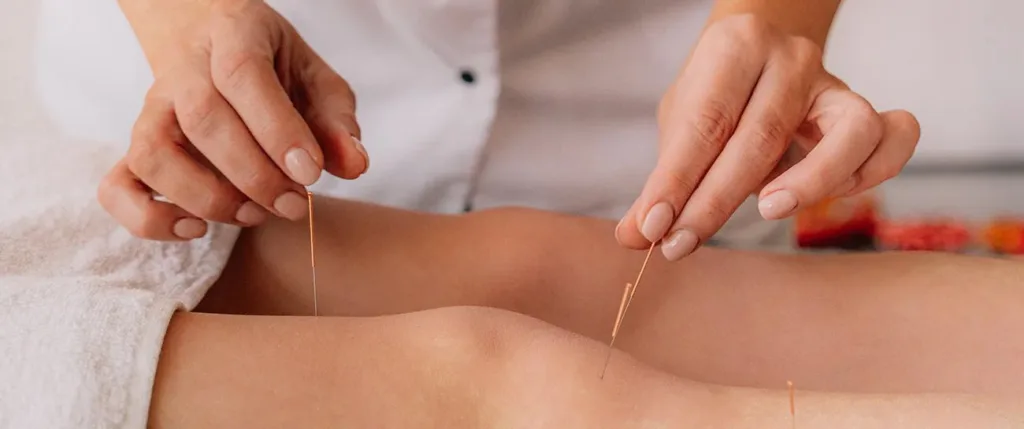Acupuncture is a holistic healing practice embraced by numerous individuals seeking relief from the overwhelming burdens associated with stress and anxiety. This ancient method involves the precise insertion of ultra-fine, sterile needles into specific points on the body, which aims to stimulate the body’s natural healing processes. This practice promotes a deep sense of calm and relaxation, which many find invaluable on their wellness journey. By targeting the underlying causes of discomfort, acupuncture paves the way for emotional stability and physical health.
Unlock the Benefits of Acupuncture for Stress and Anxiety Relief

Stress and anxiety are significant hurdles faced by many individuals across Australia, affecting people from all walks of life. When these feelings become chronic, they can disrupt daily routines and diminish quality of life, prompting many to seek effective strategies to regain control over their mental health and overall well-being. For many Australians, integrating acupuncture into their holistic health regimen has become an essential component of their quest for comprehensive wellness and emotional equilibrium.
Grounded in the principles of Traditional Chinese Medicine (TCM), acupuncture seeks to facilitate the smooth flow of energy, known as Qi, throughout the body. Research suggests that stimulating specific acupuncture points can positively affect the nervous system, helping to regulate the body’s natural stress responses, often termed the ‘fight or flight’ reaction. This regulation is essential in managing the physiological symptoms associated with elevated stress levels, contributing to improved mental health.
Integrate Acupuncture into Your Comprehensive Wellness Plan
Recognising acupuncture as a crucial aspect within a broader wellness framework can significantly enhance its effectiveness. A qualified practitioner often recommends it as a vital part of a holistic strategy aimed at achieving optimal health and well-being. This multifaceted approach usually involves collaboration with your general practitioner (GP) or a mental health professional, along with making beneficial lifestyle adjustments tailored to your individual needs.
Essential lifestyle modifications may encompass:
-
Engaging in regular physical activity to elevate your mood and energy levels, which can help mitigate feelings of stress.
-
Prioritising restorative sleep and implementing relaxation techniques to enhance recovery and resilience.
-
Maintaining a balanced diet rich in essential nutrients to support mental health and overall physical wellness.
Acupuncture is often integrated with various health strategies. The primary goal is not just to alleviate symptoms but also to strengthen your body’s inherent systems and improve resilience against stress, fostering long-term well-being.
To clarify these important concepts, the following table outlines the key elements of acupuncture’s role in health and its holistic benefits.
Key Concepts to Understand the Health Benefits of Acupuncture
|
Concept |
Brief Explanation |
|---|---|
|
Traditional Chinese Medicine (TCM) |
A holistic health system that perceives the body as an interconnected whole, where physical and emotional well-being are interdependent, acknowledging how these elements influence one another. |
|
Qi (pronounced ‘chee’) |
The vital energy or life force that circulates through the body along meridians, crucial for sustaining health and vitality. |
|
Acupuncture Points |
Specific locations on the body where Qi can be accessed and manipulated to enhance health and functionality, thus restoring balance and harmony. |
|
Nervous System Regulation |
Modern research reveals how acupuncture can help calm the body’s stress response, providing a natural method for promoting relaxation. |
Understanding these foundational concepts simplifies the process of grasping how a tailored treatment plan is developed in practice, emphasising the interconnectedness of the mind and body.
What Can You Expect During an Acupuncture Treatment Session?
Your initial acupuncture appointment begins with a comprehensive discussion. A qualified practitioner will take the time to understand your specific health concerns and objectives before starting any treatment, ensuring a personalised approach to your care.
Once you feel at ease, fine needles will be gently inserted at carefully selected points on your body. Afterward, you will have the opportunity to relax in a tranquil environment, allowing the effects of the treatment to unfold fully. This serene atmosphere is essential for maximising the therapeutic benefits of acupuncture.
Alongside the acupuncture process, your practitioner may introduce complementary therapies. For instance, insights into Chinese herbal medicine can provide a broader understanding of nurturing health from this traditional perspective. This integrated approach ensures that your care is customised to your unique needs, guiding you on your path toward enhanced well-being and holistic health.
Examining the Widespread Impact of Stress Across Australia

It is widely acknowledged that stress and anxiety are significant components of daily life for many Australians. The juggling act of work, family, and personal commitments can accumulate, causing individuals to seek effective strategies to manage their overall well-being. Recognising the prevalence of these feelings highlights why supportive therapies like acupuncture are gaining popularity in the field of mental health support.
The statistics present a concerning reality. According to a report from the Australian Bureau of Statistics (ABS) covering 2017–18, 25% of Australians reported experiencing high or very high levels of stress. Notably, women reported higher levels (28.5%) compared to men (21.6%), underscoring the widespread need for effective mechanisms to support emotional health.
What Is the Connection Between Mental Stress and Physical Symptoms?
The feeling of being ‘stressed out’ seldom exists only in the mind. Chronic stress often manifests physically, leading individuals to seek help for relief. The mind-body connection is a crucial aspect of understanding how stress impacts overall health.
The Australian Psychological Society (APS) indicates that 72% of Australians experiencing heightened stress levels also exhibit physical symptoms. This statistic serves as a reminder of the intricate relationship between our mental and physical health. For more insights into the effects of stress, visit healthinflow.com.au.
Common physical manifestations associated with ongoing stress include:
-
Persistent fatigue or a feeling of being drained of energy, which can obstruct daily functioning.
-
Frequent headaches or migraines that interfere with daily activities and reduce quality of life.
-
Tightness in muscles, particularly in the neck and shoulders, leading to discomfort and potential long-term complications.
When these physical symptoms become regular experiences, it naturally drives individuals to seek effective solutions, which often leads them to explore treatments like acupuncture.
Recognising the connection between emotional states and physical sensations is a significant step in addressing holistic health. This understanding clarifies why a comprehensive approach to wellness, incorporating practices like acupuncture for stress and anxiety, can yield beneficial outcomes over time.
The increasing demand for effective stress management has sparked interest in various supportive therapies. More individuals are exploring practices that complement their existing healthcare routines and address both the psychological and physical dimensions of stress, fostering a more balanced approach to health.
Insights from Traditional Chinese Medicine on Achieving Emotional Balance
Viewing emotional well-being through the lens of Traditional Chinese Medicine (TCM) provides a distinctive perspective compared to conventional Western medicine. Rather than focusing solely on brain chemistry, TCM adopts a holistic view, recognising the body as an interconnected system where emotions and physical health are two facets of the same reality that influence one another.
Central to this philosophy is the concept of Qi (pronounced ‘chee’), which represents the body’s vital energy or life force. This energy is intended to flow harmoniously through designated pathways known as meridians. When your Qi flows freely, you typically experience a sense of balance and overall wellness, which positively influences your emotional state.
However, factors such as prolonged stress, overthinking, or sudden traumatic events can disrupt this flow, leading to stagnation. TCM frequently links this disruption to feelings commonly associated with stress, irritability, or worry, highlighting the importance of maintaining Qi balance for emotional stability.
How Do Your Organs Influence Your Emotional Well-Being?
Within TCM, specific organ systems are recognised as foundational to particular emotions. This perspective extends beyond the physical organs described in anatomy textbooks; it encompasses broader functional networks that affect both physical and emotional health, illustrating the interconnected nature of our bodies.
When addressing issues related to stress and anxiety, two organ systems typically draw attention:
-
The Liver System: This system is essential for ensuring the smooth flow of Qi throughout the body. When Liver Qi becomes stagnant—often due to frustration or unresolved stress—it can manifest as irritability and tension headaches, indicating an imbalance that may require attention.
-
The Heart System: In TCM, the Heart is viewed as the home of the mind and spirit, referred to as the ‘Shen’. An imbalance within this system can trigger feelings of anxiety, restlessness, and difficulty sleeping, leading to poor sleep quality and emotional disturbance.
From this traditional viewpoint, addressing emotional imbalance does not involve suppressing feelings; rather, it is about identifying where the Qi is blocked and applying acupuncture to restore its free flow, facilitating emotional healing and resilience.
Understanding these core principles clarifies why practitioners select specific acupuncture points. They employ distinct diagnostic methods to identify these patterns within your body. For a deeper understanding of how this diagnostic process works, refer to our guide on TCM diagnostic methods.
What Does Contemporary Research Reveal About Acupuncture and Anxiety Management?
While Traditional Chinese Medicine provides a rich, time-honoured framework for emotional health, contemporary science is beginning to align with these principles. Researchers are investigating how acupuncture may influence the body’s stress responses, offering additional insights into its effectiveness in managing anxiety.
Upon reviewing scientific literature, it becomes evident that the language used is often cautious and measured. Research typically focuses on elucidating how acupuncture functions rather than making absolute claims. The consensus suggests that acupuncture may be a valuable component of a comprehensive plan for managing anxiety symptoms, particularly in studies that compare it to placebo or control groups.
Growing Evidence Supporting Acupuncture’s Effectiveness in Reducing Anxiety
Recent high-quality reviews are beginning to reveal encouraging trends. The Acupuncture Evidence Project, a thorough review of scientific literature, identified moderate evidence supporting acupuncture’s effectiveness in treating anxiety, categorising it as having an ‘Evidence of Potential Positive Effect’. This finding reinforces acupuncture’s role as a viable option for individuals pursuing alternative therapies.
Out of 1,135 clinical studies reviewed on this subject, 13 were identified as high-quality studies, reporting positive outcomes for acupuncture compared to control groups. An Australian-focused review indicated that 11 of these 13 studies demonstrated statistically significant reductions in anxiety symptoms, further validating acupuncture’s potential. For those interested in delving deeper into the data, our Evidence Based Acupuncture website offers valuable insights.
The infographic below illustrates which organ-meridian systems are most frequently targeted in clinical practice when addressing stress and emotional imbalances, emphasising the holistic approach adopted by practitioners.

As illustrated, the focus heavily centres on the meridians traditionally associated with processing emotions, managing stress, and achieving mental clarity, underscoring the efficacy of acupuncture in holistic health.
It is essential to remember that scientific understanding is continually evolving. The research available is promising, yet it represents just a fraction of an ongoing, broader conversation. For practitioners, this evidence guides us in making informed, balanced decisions when crafting supportive care plans for our clients.
What Should You Expect During Your Acupuncture Appointment?

Entering your first acupuncture appointment may stir feelings of uncertainty; however, the process is designed to be calming, professional, and centred on you. We follow a clear, step-by-step protocol to ensure you feel relaxed and supported from the moment you arrive.
Your initial session begins with an in-depth discussion with our registered practitioner. During this conversation, we explore your health history, the specifics of your stress and anxiety symptoms, and your desired outcomes. This comprehensive dialogue is crucial for crafting a personalised treatment plan that aligns with your unique needs and facilitates optimal healing.
After our discussion, you will be invited to recline comfortably on a treatment table. The practitioner will then gently insert ultra-fine, sterile, single-use needles into selected acupuncture points on your body, ensuring a safe and hygienic experience.
Understanding the Treatment Process and What to Expect
Once the needles are accurately positioned, your primary role is to relax. Most clients lie quietly in a tranquil setting for approximately 20 to 30 minutes. This period is essential for allowing the body to respond to the treatment and for the Qi to circulate effectively.
What should you anticipate feeling? Typically, the sensation is mild. Many individuals report experiencing a dull ache or a slight tingling sensation at the needle insertion point, which often fades quickly, leading to an overall feeling of relaxation and tranquillity.
The number of needles and their specific placement are determined by the discussions we had during your initial consultation. When applying acupuncture for stress and anxiety, we select points well-known for their ability to soothe the mind and regulate the body’s responses to external pressures, fostering emotional balance and resilience.
At JG Alternative Healthcare, our practitioner is registered with the AHPRA, ensuring you receive both professional and safe care throughout your treatment journey.
If you are eager to discover how this process can benefit you, beginning your journey is simple. You can schedule your first consultation by checking our Melbourne acupuncture clinic appointments online, taking the first step towards enhanced well-being.
Answering Common Questions About Acupuncture for Effective Stress Management
It is entirely natural to have questions when considering a new approach to your health. Let’s explore some of the most frequently asked questions regarding the use of acupuncture to manage stress and anxiety, providing clarity and insight.
Does Acupuncture Cause Pain During Treatment?
For the majority of individuals, the answer is no. Acupuncture needles are extraordinarily fine—approximately the same thickness as a human hair. They differ significantly from the needles used for injections or blood tests, making them far less intrusive.
You may feel a brief prick or a gentle ache upon needle insertion, but this sensation typically subsides within seconds. After the needles are properly positioned, many clients describe sensations of profound relaxation and calm, which greatly enhances their overall experience.
How Many Sessions Are Generally Needed for Optimal Results?
This question is highly individual, as everyone’s body and circumstances vary. The number of sessions required may depend on various factors, including the duration of your symptoms and your overall health condition, which we will assess during our consultation.
During our initial consultation, we will discuss your situation in detail. From this conversation, I will recommend a treatment plan tailored to your specific needs, and we will consistently monitor your progress to ensure effective outcomes and make adjustments as necessary.
Can Acupuncture Be Combined with Other Treatments for Enhanced Effectiveness?
Absolutely. Acupuncture can effectively complement other forms of care. Many individuals find that it enhances the treatments they are currently receiving from their GP, psychologist, or other healthcare professionals, making it a versatile addition to your health strategy.
The key point is to maintain clear communication. Always inform your health team about all therapies you are engaging in. This ensures that your care remains safe, coordinated, and works synergistically for your benefit, promoting overall health and well-being.
Is Acupuncture Considered Safe for All Patients?
When conducted by a registered and qualified practitioner, acupuncture is classified as low-risk. In Australia, acupuncturists must be registered with the Australian Health Practitioner Regulation Agency (AHPRA), ensuring adherence to stringent national standards for safety, hygiene, and professional conduct.
This registration ensures that your practitioner follows these standards, confirming that only sterile, single-use needles are utilised during treatments, thereby prioritising your safety and comfort throughout the process.
Why Is Acupuncture Gaining Popularity for Anxiety Management in Australia?
Anxiety has emerged as the most common mental health condition in Australia, affecting approximately 14% of the population annually. With such a significant number of individuals impacted, there is an increasing demand for supportive, evidence-based options. Some studies indicate that acupuncture may help alleviate anxiety symptoms, often with fewer side effects compared to more conventional treatments. For a deeper understanding of the research surrounding acupuncture and anxiety, click here.
The aim of acupuncture is not to replace conventional medical treatments but to act as a supportive partner alongside them. It represents one piece of a larger puzzle in managing your overall well-being, promoting a more integrated approach to health.
We hope these responses provide clarity on how acupuncture may fit into your health strategy, empowering you to make informed decisions about your well-being.
Are you ready to explore how our registered practitioner can assist you? Connect with JG Alternative Healthcare today.
Melbourne Acupuncture Clinic – Book an Appointment at Moonee Ponds or South Morang at https://jghealthcare.com.au
The Article: Acupuncture for Stress and Anxiety: A Clear Guide first appeared on https://writebuff.com
The Article Acupuncture for Stress and Anxiety: Your Essential Guide Was Found On https://limitsofstrategy.com
The Article Acupuncture for Stress and Anxiety: A Vital Handbook First Appeared ON
: https://ad4sc.com

